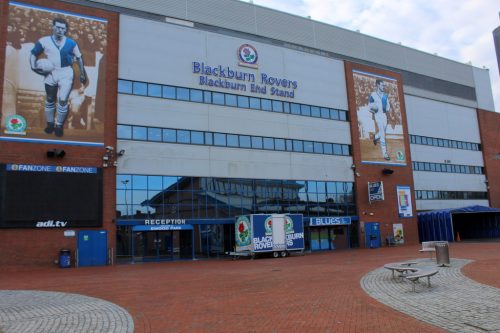Blackburn Rovers accounts highlight ‘material uncertainty’ over finances

The latest annual accounts for EFL Championship Club Blackburn Rovers have laid bare the stark reality of the club’s dependency on their owners Venky’s.
Though turnover was for the year to the end of June 2023 was up to £21m, from £16.6m the previous year, the club recorded pre-tax losses of £20.9m and a wage to turnover ratio of 123%.
In finishing 7th and enjoying a run to the FA Cup sixth round, Rovers featured on television 23 times, compared to 11 the previous season.
But the accompanying strategic report also states that detailed cash flow forecasts for the next four years indicate that the club will “require significant funding in addition to the current facilities”.
The accounts and the audit report make a reference to “material uncertainty exists that may cast doubt on the company’s ability to continue as a going concern”.
Further, the accounts note the “legal matter” in India, which has suspended the transfer of funds to all Venky’s overseas subsidiaries.
The original tax dispute relates to their purchase of a house in Lancashire from former footballer turned businessman Gary Neville.
The next court appearance is scheduled for August 2024, after the start of the new season, and until then the lights will be kept on by funds from player sales.
“The amount of additional funding required will be dependent on the net proceeds of any player trading, on field performance and availability of bank facilities,” the report stated.
Midfielder Adam Wharton was sold to Crystal Palace for £17m in the January transfer window.
The accounts show a £7m payment for disposals, relating to the sale of striker Adam Armstrong to Southampton.

Chief executive Steve Waggott (in tie) meets fans
Other details revealed in the accounts include a note that the highest paid director – most likely to be chief executive Steve Waggott – saw an increase in his pay of £37, 475, from £271,413 in 2022 to £308,888 in 2023, plus £12,001 in company pension contributions, up from £1,321.
The amount paid to the two other executive directors of the club who earned a salary in the year was £164,378 between them.
The club has also reported recently that finance director Mike Cheston is to leave the club.
Formerly the Head of Finance at Everton, he has been replaced by Matt Wright who has now joined the club as Chief Financial Officer.
He has previously worked in football at Fulham, Huddersfield Town and Blackpool.
Last night Rovers lost 5-0 to Bristol City plunging them deeper into a relegation battle ahead of a visit to league leaders Leeds United on Saturday.







